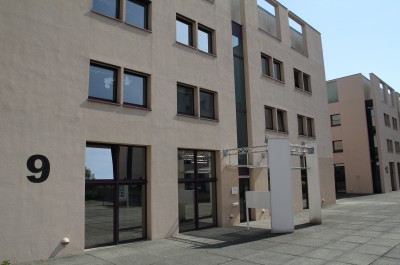Organisational structures and modus operandi of the perpetrators (PRIMSA)
| Project period |
November 2014 – October 2017
| Project staff |
Bettina Zietlow (Project manager)
Katharina Heermann
Xenia Kellner
| Funding |
Federal Ministry for Education and Research in the framework of promotion directive „Zivile Sicherheit – Schutz vor organisierter Kriminalität”
| Cooperation partner |
University of Vechta (Prof. Dr. Yvette Völschow)
Eberhard Karl University of Tübingen (Prof. Dr. Rita Haverkamp)
Fraunhofer Institute for Biomedical Techniks (Dr. Holger Hewener)
University of Saarland (Dr. Tilman Rohrer)
Company Cemec
Federal Criminal Police Office
Police Department of Hannover
Solwodi e.V.
Hope for Freedom e.V.
Donau University of Krems (Prof. Dr. Silke Gahleitner)
Research Institut AG & Co KG Wien – Center for digital human rights
AKAtech Produktions- und Handels GmbH
| Project description |
KFN has been engaged in research on human traffickers since November 2014 in a joint German-Austrian research project, PRIMSA (Prevention and intervention in human trafficking for the purpose of sexual exploitation). Effective prevention requires detailed knowledge about the perpetrators, their modus operandi and their connections. A range of empirical approaches are used (case file analysis; expert and perpetrator interviews) to find out how perpetrators describe themselves (including socio-demographically and in terms of their biography), what strategies they deploy and what are the organisational structures behind human trafficking in Germany. A further aim is to identify successful police investigation strategies and analyse how criminal prosecution is implemented.
In a first step, 500 criminal prosecution files from the years 2008 to 2012 are to be analysed to compile a phenomenological description. The analysis will include both cases that led to a conviction as well as cases that were not prosecuted or that were prosecuted but did not end in a conviction. This makes it possible to see why the suspicion of an offence did not lead to a conviction for that offence. The sample of files is to be selected randomly and is to display the same distribution of victim and perpetrator characteristics as the population of all cases of human trafficking on file.
A second step consists of expert interviews on various research questions. The interviews will focus in particular on how human trafficking is planned and conducted, how exploitation is organised in Germany, and successful and less successful strategies in police investigation work and judicial prosecution. Experts are selected from three groups: the police (members of the Länder and federal police forces, and detectives at the Länder and federal criminal police offices), the judiciary (public prosecutors and judges), and victim assistance organisations. Qualitative expert interviews are first conducted to determine what experts to target for what topics in the in-depth survey. The qualitative interviews are also used in testing and developing specific questions for the questionnaire to be used in the ensuing standardised survey. The goal is to recruit at least 100 experts from the various areas for the written survey.
For a more detailed description of the perpetrators, an attempt will also be made to recruit ten human traffickers in detention for qualitative biographical interviews.
The aim of the overall project consortium is to develop internationally deployable prevention and intervention tools at the levels of investigation, victim assistance and further training. The consortium is funded from November 2014 to October 2016 by the German Federal Ministry of Education and Research (BMBF) under a BMBF funding directive on civil security and protection from organised crime and by the Austrian Federal Ministry for Transport, Innovation and Technology (BMVIT) under the KIRAS security research funding programme.
Consortium partners include, in Germany, the University of Vechta, the Fraunhofer Institute for Biomedical Engineering, Saarland University, the University of Tübingen, CEMEC Intelligente Mechanik GmbH and, in Austria, Danube University Krems, the Digital Human Rights Center (DHRC) of Research Institute AG & Co KG (Vienna), and AKAtech Produktions- und Handels GmbH. Other participants include the German Bundeskriminalamt (Federal Criminal Police Office), Hanover Police Headquarters, and the non-governmental organisations SOLWODI e.V. and Hope for Freedom e.V.
Further information: www.primsa.eu

